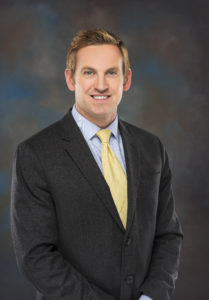Early in the COVID-19 pandemic, when many organizations began looking for ways to support the mental health needs of their staff, leaders at the 48-hospital Bon Secours Mercy health system in Ohio realized that some of the most effective and appropriate help might be readily available under their own roof.
They found that when stress and burnout are the issue, the remedy might be connecting with a coworker who can be in your corner because they are already in your circle – someone who is living the same kinds of challenges in the same hallways, offices and exam rooms. With that in mind, the health system implemented its free, personalized Caring4Colleagues program, which started as a fairly informal, phone-based peer support initiative and grew into a major benefit that has helped hundreds of staff members connect, recharge and destress. It encourages deep conversation between individuals, using a trauma-informed approach and motivational interviewing to help people meet and overcome challenges.
SmartBrief talked with the system’s medical director for behavioral health, Dr. W. Carson Felkel II, to find out how Caring4Colleagues continues to evolve, how it helps staff and family members in real time, and what it has meant to participants.

How did the Caring4Colleagues program get started? What was the rationale behind it?
There were a number of people formally and informally reaching out to us for mental health assistance in 2020. We were being contacted on a daily basis for curbside consults by staff members who needed help. There are a lot of informal avenues through which we care for people here; that’s natural in our setting. But we found at the beginning of the pandemic that those channels were exploding. So we began putting together a formalized plan for Caring4Colleagues and launched it in May 2020.
How does the process work?
It started with phone calls. People would text or call our number, and we’d call back, delivering interventions on the spot. It’s a kind of a triage line, but it is very different from the traditional method of calling an employee assistance program and then waiting for a referral. That’s not how we work. Our program consists of a close-knit colleague group – mainly physicians, psychologists, nurses and some chaplains and therapists – and when people call and get one of us, we stick with them. We get them the appropriate level of care right away, based on that supportive relationship with a colleague who is in the trenches with them. We don’t do actual mental health care delivery through the program, but we can get immediate help if a person is in crisis at any point.
Today, there are other ways to access the program as well. People can pick who they would like to speak with from a flier, or they can scan a QR code in a restroom, lounge or hallway, wherever they happen to be. They also can reach out to someone in a different market than the one they work in for an enhanced level of privacy and anonymity.
Is the program reaching the goals it set out to meet?
In 2020, we served 88 physicians and advanced practice clinicians, and from there, the program grew to include other staff members. To date, we have served more than 485 people through the initiative, and it’s open to all associates and their family members.
We also have implemented “empathy rounding,” where chaplains and therapists visit different units and make themselves available to listen.
The Caring4Colleagues program has worked well so far, and that’s a testament to several things, including the fact that relationships matter. I think our society in general has moved away from developing long-lasting connections with others, so having a culture that values people and creates time and space to listen to them is important.
One success we didn’t necessarily foresee is a major increase in employee assistance program utilization when a colleague needs further help. It’s gone up by something like 71%. We have a great benefits package that includes six free counseling sessions with good therapists.
Has your leadership been supportive of the program?
When it comes to clinician well-being and changing the culture, you must have a top-down approach. We do have buy-in from our leaders, and the pandemic era has kept events like the suicide death of Dr. Lorna Breen top of mind for everyone. In each meeting we’ve had with senior leaders, they have talked about the importance of reaching out to staff, and they have used that idea at all levels. They keep promoting it because it works.
If you think about what’s going on across the country, delivering value is another important focus. You certainly can assign monetary value to retaining good talent.
Has the program inspired innovations or changes in other areas of the health system?
It certainly has elevated behavioral health. In many health systems, that kind of care is siloed, but the conversations around burnout have grown because of the pandemic. It has led to the expansion of other programs. Before the pandemic, you wouldn’t have grouped mental health and addiction with burnout, but the majority of the workforce has been suffering from stressors or adjustment disorders as a result of the crisis. I think the program has led to a renewed focus on healing our staff so they can heal others.
Do you promote the initiative to new employees?
We present it to our teams each month when new providers and clinicians come on board, and interest has been growing rapidly. Just recently, someone called the very next day after hearing about it, and said, “My spouse is having issues, and we need help.”
What kind of feedback have you gotten from Caring4Colleagues participants?
The program is confidential and anonymous, of course, but I can say that there have been some very rewarding outcomes. One of the most impactful things was a message from a clinical caregiver who was receiving treatment and was very reluctant to do so at first. But now that person is on the other side and is profusely thankful for the help. People have said things like, “Before, I was a physician and a human being. Now, this experience has made me a better clinician, parent and spouse.”
It’s my favorite part of the day, getting those calls. As a health care professional, you don’t always know whether you are having an impact in the long run, but with this program, I know we are making a difference.
Have other health systems approached you about implementing similar initiatives?
We have had other people asking about it, and some organizations have tried it and had success. We did a presentation on the program at a physician well-being conference, and it was great to have people from other hospitals come up and talk to us. Peer-to-peer support is a big topic, particularly in addiction treatment, and it’s clear that patients do best when they have a relationship with someone who can walk through life with them, understand them and know exactly what they are going through. It hasn’t necessarily been done this way at many offices and clinics, so it’s kind of a “secret sauce” for us.
How are you passing your knowledge and experience along?
We have sister hospitals that we partly own, and they might have a network of other facilities that want to do the same type of supportive program. We will do trainings to onboard their teams, and we can serve as a resource for their associates to call. Their team members can contact us when they need help setting up and running their programs. We enjoy giving others the confidence to start their own.
We are in Catholic health care, so we have a mission to serve the community and deliver the healing ministry of Christ. That means we also have a duty to help restore dignity and well-being to vulnerable people. Through this program, we live out the mission to deliver top-notch care to all, whether they are working on the front lines or not.
W. Carson Felkel II, MD, FAPA, is a child, adolescent and adult psychiatrist as well as the system medical director for behavioral health at Bon Secours Mercy Health (BSMH). He is also the lead physician for behavioral health for the Bon Secours Greenville, South Carolina market. In his role as system medical director and lead physician for behavioral health, Felkel has been on the front lines of addressing the impact of the COVID-19 pandemic on mental health in children, teens, adults and the health care workforce. Dr. Felkel also leads BSMH’s provider and employee mental health and well- being initiatives, focusing on Caring for Colleagues, a peer support led program. Felkel previously served as the medical director for behavioral health integration at Cornerstone Health Care.
